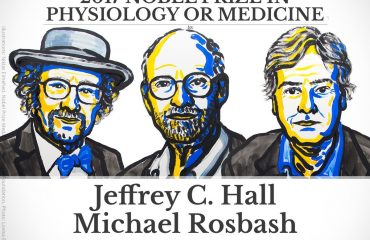Q. Is the “morning-after pill” safe? Does it work? Is there anything that you can do in the morning after to protect yourself against sexually transmitted diseases?
A. There are several regimens of hormones that can be used within a short period after sexual intercourse to prevent pregnancy. The “morning-after” pill that is most often used today is a higher than normal dose of the combination birth control pill Ovral. The usual protocol is two 50-mg. Ovral pills within 72 hours of unprotected intercourse, followed by two more and 50-mg pills twelve hours later. Although this method is not fool-proof, the failure rate – that is, the rate of pregnancy – among women who follow this regimen is extremely low. Keep in mind, however, that the risk of actually conceiving after one unprotected intercourse mid-cycle is also fairly low (between 1 in 6 and 1 in 4 women). The FDA has not approved Ovral for this use and there have not been any studies on the long-term effects of this treatment.
I do not recommend that you try this regimen on your own. Heavy doses of hormones can throw your natural hormonal balance out of kilter, and it is advisable to discuss the potential effect of this treatment with your doctor before doing this by yourself. In addition to upsetting your own menstrual patterns, the other side effects include extreme nausea, headaches, and dizziness.
The treatment of many sexually transmitted diseases is now simpler than it used to be: Often, a single dose of medication is all that is required. For example, gonococcal urethritis can be treated with one dose of an antibiotic like ciprofloxacin (400-mg one time). A single oral 1 gram dose of azithromycin cures chlamydial urethritis and cervicitis. If you develop urinary tract symptoms after intercourse (burning, urgency) or have a vaginal discharge that seems unusual to you, see your doctor at the earliest opportunity for appropriate cultures and treatment. Some woman develop urinary tract infections very frequently and these infections are related to sexual activity. If this is the case with you, your doctor may counsel you that one dose of an antibiotic medication the next day is in order. Be sure not to do this on your own, since the wrong medication or one taken for too short a time may well result in the development of organisms that are resistant to medication.
Marianne J. Legato, MD, Ph. D. (hon. c.), FACP is an internationally renowned academic, physician, author, lecturer, and pioneer in the field of gender-specific medicine. She is a Professor Emerita of Clinical Medicine at Columbia University College of Physicians & Surgeons and an Adjunct Professor of Medicine at Johns Hopkins Medical School. Dr. Legato is also the Director of the Foundation for Gender-Specific Medicine, which she founded in 2006 as a continuation of her work with The Partnership for Gender-Specific Medicine at Columbia University. She received an honorary PhD from the University of Panama in 2015 for her work on the differences between men and women.
At its core, gender-specific medicine is the science of how normal human biology differs between men and women and how the diagnosis and treatment of disease differs as a function of gender. Dr. Legato’s discoveries and those of her colleagues have led to a personalization of medicine that assists doctors worldwide in understanding the difference in normal function of men and women and in their sex-specific experiences of the same diseases.
She began her work in gender-specific medicine by authoring the first book on women and heart disease, The Female Heart: The Truth About Women and Coronary Artery Disease, which won the Blakeslee Award of the American Heart Association in 1992. Because of this research, the cardiovascular community began to include women in clinical trials affirming the fact that the risk factors, symptoms, and treatment of the same disease can be significantly different between the sexes. Convinced that the sex-specific differences in coronary artery disease were not unique, Dr. Legato began a wide-ranging survey of all medical specialties and in 2004, published the first textbook on gender-specific medicine, The Principles of Gender-Specific Medicine. The second edition appeared in 2010 and the third edition, dedicated to explaining how gender impacts biomedical investigation in the genomic era, won the PROSE Award in Clinical Medicine from the Association of American Publishers in 2018. A fourth edition is forthcoming.
She also founded the first scientific journals publishing new studies in the field, The Journal of Gender-Specific Medicine, and a newer version, Gender Medicine, both listed in the Index Medicus of the National Library of Medicine. She has founded a third peer-reviewed, open access journal, Gender and the Genome, which focuses on the impact of biological sex on technology and its effects on human life.
Dr. Legato is the author of multiple works, including: What Women Need to Know (Simon & Schuster, 1997), Eve’s Rib (Harmony Books, 2002), Why Men Never Remember and Women Never Forget (Rodale, 2005), Why Men Die First (Palgrave, 2008), The International Society for Gender Medicine: History and Highlights (Academic Press, 2017), and most recently, The Plasticity of Sex (Academic Press, 2020). Her books have been translated into 28 languages to date.
As an internationally respected authority on gender medicine, Dr. Legato has chaired symposia and made keynote addresses to world congresses in gender-specific medicine in Berlin, Israel, Italy, Japan, Panama, South Korea, Stockholm, and Vienna. In collaboration with the Menarini Foundation, she is co-chairing a symposium on epigenetics, Sex, Gender and Epigenetics: From Molecule to Bedside, to be held in Spring 2021 in Italy. She maintains one of the only gender-specific private practice in New York City, and she has earned recognition as one of the “Top Doctors in New York.”




